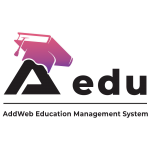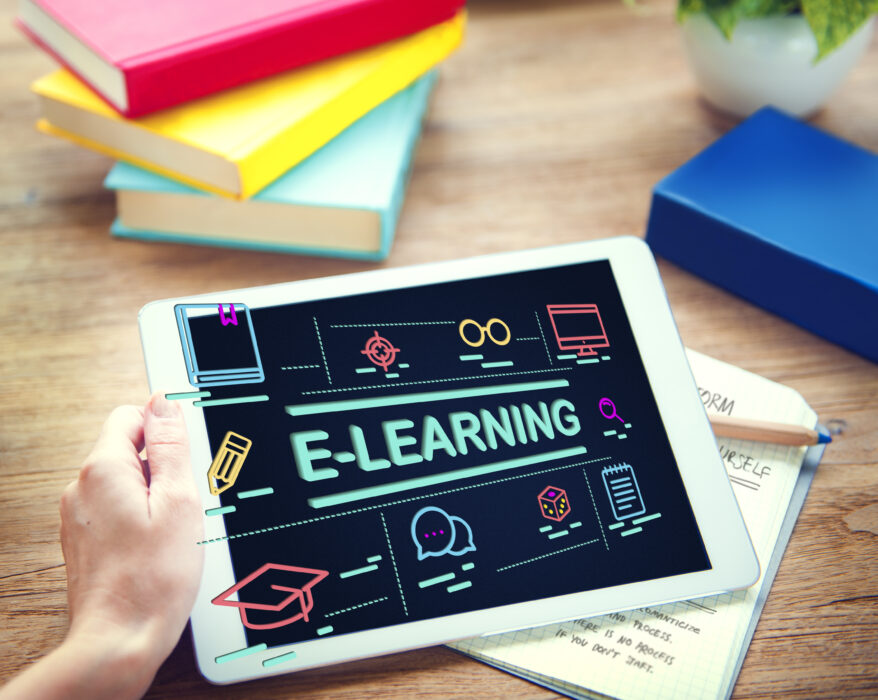In the dynamic landscape of education, the amalgamation of blockchain development and eLearning has given rise to a revolutionary wave of transformation. Blockchain eLearning app development stands as a testament to the progressive synergy between cutting-edge technology and educational paradigms. This innovative convergence not only pioneers enhanced security measures but also reshaped the fundamental structures of the education sector.
Blockchain development, known for its decentralized and secure nature, addresses longstanding challenges within education, fostering a transparent and tamper-resistant environment. The integration of this technology into eLearning applications introduces a novel approach to data management, authentication, and certification processes. With Blockchain’s inherent ability to validate and secure transactions, educational institutions can streamline administrative tasks, ensuring the integrity of academic records and certifications.
This exploration aims to unravel the profound impact of Blockchain eLearning app development on the education sector. By navigating the intricate realm where Blockchain and education intersect, we unveil the transformative potential that lies in redefining traditional learning methodologies and forging a path toward a more efficient, secure, and decentralized educational landscape.
Ways Blockchain-based eLearning App Revolutionize the Educational Sector
Ensuring Your Information Stays Safe:
Nowadays, buying even a small item is as easy as a few clicks. However, this convenience sometimes comes with a trade-off – compromised data security. ELearning platforms face the same challenge. Traditional eLearning apps store sensitive information on centralized servers, making them vulnerable to data breaches. Enter Blockchain! With its decentralized architecture and advanced cryptographic techniques, Blockchain ensures a secure and tamper-resistant space for storing student data, certifications, results, and other sensitive information. Developing eLearning apps with Blockchain is a smart move to keep unauthorized access at bay and guarantee the integrity of academic records.
Records You Can Trust:
Imagine your academic records being tamper-proof! That’s the magic of Blockchain’s unalterable nature. Once your data is on the Blockchain, no unauthorized users can mess with it. This immutability not only keeps academic records intact but also guarantees their authenticity, creating a reliable and trustworthy system. Students, teachers, or anyone authorized can access information on Blockchain eLearning apps without any worries about accuracy.
Learning Without Interruptions:
Traditional eLearning platforms face issues like data loss and downtime because they store all data in one centralized place. Blockchain changes the game by creating a decentralized learning platform, spreading data across a network of nodes. This decentralization ensures continuous access and reduces the risk of system failure. Thanks to Blockchain eLearning app development, schools can offer learning materials seamlessly, and students can access them without any interruptions.
Flexible Payments for Learning:
Blockchain eLearning app development takes a groundbreaking approach by removing the need for traditional payment gateways. It introduces micropayments for learning resources, allowing students to pay for specific modules, courses, or materials through a flexible and detailed payment structure. This financial flexibility is a game-changer for learners.
Building Trust in Online Education:
In the realm of online education, establishing trust is paramount, and blockchain-based eLearning apps are revolutionizing the educational sector in this regard. Through transparent and tamper-resistant record-keeping, blockchain development services ensure the integrity of academic credentials and certifications. This decentralized approach to storing and verifying educational data enhances the credibility of online courses, fostering trust among students and employers alike. Blockchain’s immutability and security features not only combat fraud but also provide a verifiable trail of educational achievements, mitigating concerns related to credential authenticity. Ultimately, by incorporating blockchain into eLearning apps, the educational sector is poised to build a foundation of trust, laying the groundwork for a more reliable and reputable online learning environment.
Education Without Borders:
Blockchain eLearning app development opens up education on a global scale. Breaking down geographical barriers, Blockchain’s decentralized nature allows students worldwide to enroll, gain knowledge, collaborate, and earn certifications without worrying about sensitive information misuse. The development of blockchain education platforms sparks a cross-cultural learning experience, making education accessible to everyone.
It’s Time for a Better Learning Experience:
The integration of Blockchain in the education sector is now essential to provide students with a more secure, transparent, and tamper-proof learning environment. Recognizing the power of Blockchain, many educational institutions are making the shift towards Blockchain eLearning applications. This move ensures that the future of education is not only advanced but also secure and reliable for all learners.
The Successful Integration of Blockchain and eLearning
The exciting collaboration of Blockchain and eLearning is set to revolutionize education. Known for being secure and decentralized, Blockchain brings a new level of transparency, efficiency, and trust to eLearning platforms.
Imagine eLearning platforms providing unchangeable records of your achievements, certifications, and qualifications. These records, securely stored on a shared ledger, cannot be altered, ensuring your educational accomplishments are legitimate and trustworthy—an important step towards a more reliable system.
But it doesn’t stop there! Blockchain also introduces the idea of micropayments, motivating learners with tokenized rewards. Complete a course, achieve milestones, or show expertise in specific areas to earn tokens. These tokens can be used for more education, exchanged for goods and services, or even saved up like an investment.
Moreover, Blockchain promotes direct communication and collaboration within eLearning platforms, cutting out intermediaries. This decentralized approach creates a supportive community, making learning more inclusive and accessible.
Lastly, Blockchain’s unchangeable and transparent features tackle issues like plagiarism and intellectual property theft. Smart contracts ensure fair compensation for content creators, encouraging the development of high-quality educational materials.
In a nutshell, the fusion of Blockchain and eLearning isn’t just a technological advance—it’s a key to shaping a more transparent, engaging, and trustworthy future for education.
Conclusion
In culmination, the evolution of the education sector through Blockchain eLearning app development marks a revolutionary stride towards a more secure, transparent, and accessible learning environment. The fusion of blockchain technology and eLearning not only ensures the integrity of academic records but also redefines the very fabric of educational interactions. As institutions embrace this transformative approach, mobile app solution becomes a pivotal catalyst in democratizing education.
From decentralized credentialing to fostering continuous learning through micro-credentials, Blockchain’s influence permeates every facet of the educational experience. The commitment to transparent resource allocation, peer-to-peer learning platforms, and secure intellectual property protection underscores the comprehensive impact of Blockchain on the sector. As we navigate this era of innovation, Blockchain eLearning app development propels the education sector into a future characterized by resilience, adaptability, and unparalleled opportunities for learners worldwide.

